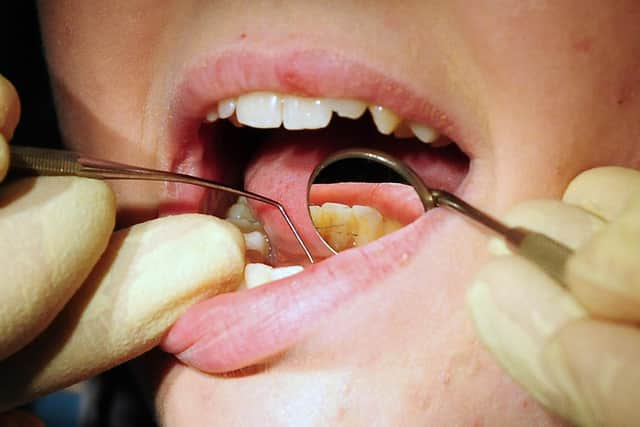The Government has a plan for fixing the crisis in NHS dentistry - Victoria Atkins
Since then, we have taken decisive action to recover services: we have made reforms to the dental contract, so that practices are paid more fairly for caring for NHS patients with more complex needs; and we have made sure that dentists update the NHS website regularly so that the public know that they are taking on new patients.
That has delivered results, with more than one million more people seeing an NHS dentist last year than in the year before.
Advertisement
Hide AdAdvertisement
Hide AdHowever, we know that too many, particularly those living in rural or coastal communities, are still struggling to find appointments.


This recovery plan will put that right by making NHS dental care faster, simpler, and fairer for patients and staff.
First, we will help anyone who needs to see an NHS dentist to do so, wherever they live and whatever their background. To do this, we must incentivise dentists across the country to care for more NHS patients.
For the coming year, we are offering dentists two new payments on top of their usual payments for care—£15 for every check-up they perform on NHS patients who have not been seen over the past two years, and £50 for every new NHS patient they treat who has not been seen over the same period—because we know that patients who do not have a relationship with a dentist find it harder to get care. That is not a long-term ambition: our new patient premium will be available from next month.
Advertisement
Hide AdAdvertisement
Hide AdWe are also increasing the minimum payment that dentists receive for delivering NHS treatments, which will support practices with the lowest unit of dental activity rates to provide more NHS care. However, we know that in many of our rural, remote and isolated communities, dentists themselves are in short supply.
That is why starting this year, up to 240 dentists will receive golden hello payments worth up to £20,000 when they commit themselves to working in one of those areas for at least three years. These dentists will give patients the care they need faster, make dental provision fairer and tackle health inequalities.
We are also delivering dentistry to our most remote regions without delay. This year, we will deploy dental vans to more isolated, rural and coastal areas. Staffed by NHS dentists, they will offer check-ups and simple treatments such as fillings. This model has been a tried and tested success across many regions. For example, last year in Cornwall, a mobile van visited five harbours, treating more than 100 fishermen and their families. We will be rolling out up to 15 vans across Devon, Gloucestershire, Somerset, Norfolk, Suffolk, Lincolnshire, Cambridgeshire, Dorset, Cornwall, North Yorkshire and Northamptonshire. This move has been welcomed by Healthwatch, the Nuffield Trust and the College of General Dentistry. We will let patients know when vans will be in their area, so they can get the care they need faster.
These reforms will empower NHS dentists to treat more than one million people and deliver 2.5 million more appointments.
An abridged version of a speech by Health Secretary Victoria Atkins during a debate in the Commons on NHS Dentistry: Recovery and Reform.
Comment Guidelines
National World encourages reader discussion on our stories. User feedback, insights and back-and-forth exchanges add a rich layer of context to reporting. Please review our Community Guidelines before commenting.